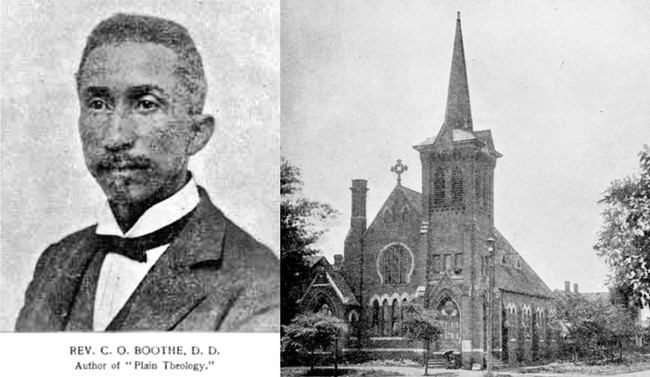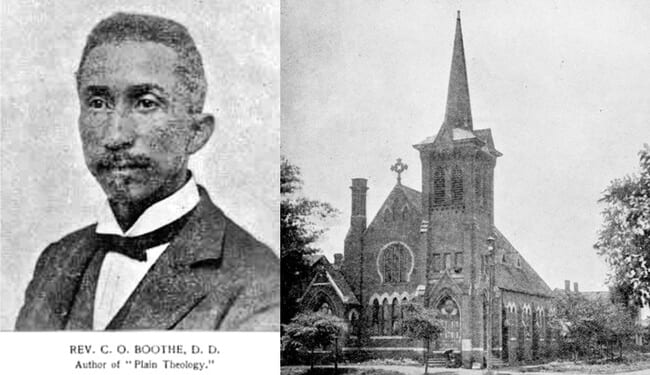
Over the past few years, I’ve read several systematic theologies. Reading a systematic theology is a commitment more often than not because these tomes are long and exhaustive — but it’s almost always a gratifying experience.
One of the most interesting and formidable ones I’ve read is “Plain Theology for Plain People” by Charles Octavius Boothe. Boothe was born in slavery in 1845 and dedicated his life of freedom to ministry. He was the founding pastor of Dexter Avenue Baptist Church in Montgomery, Ala., where Martin Luther King also pastored.
Boothe wrote “Plain Theology for Plain People” primarily for black Baptists, but it’s rich and rewarding for any student of the Bible and theology. Don’t let the word “plain” fool you. Boothe wrote a challenging book, partially due to the late 19th-century writing style but mostly because he didn’t discount the intelligence of his readers. In Boothe’s words, “plain” meant that “simplicity should prevail — simplicity of arrangement and simplicity of language,” but he didn’t shy away from the truth.
A few weeks ago, Logos Bible Software featured a selection from “Plain Theology for Plain People in its “Word by Word” blog. The blog post discussed the concept of repentance, which I tend to think that most people (including me) take for granted or don’t completely understand.
“By repentance is meant a true godly sorrow for sin; that is, a sorrow which arises from the understanding that sin, in its worst forms, is an act of disobedience or of positive enmity to God, who demands our best obedience, and who is worthy to be loved by all men with all their heart and soul and might and mind and strength,” Boothe writes. (See what I mean about his writing not being “plain”?)
Boothe cites Romans 8:7: “For the mind that is set on the flesh is hostile to God, for it does not submit to God’s law; indeed, it cannot.” He also reminds his readers about King David’s cry of repentance when the prophet Nathan called him out for his adultery and murder:
Have mercy on me, O God, according to your steadfast love; according to your abundant mercy blot out my transgressions. Wash me thoroughly from my iniquity, and cleanse me from my sin! For I know my transgressions, and my sin is ever before me. Against you, you only, have I sinned and done what is evil in your sight, so that you may be justified in your words and blameless in your judgment.
While it’s true that David sinned against Uzziah and Bathsheba, Psalm 51 shows us that David knew that his sin was against God as well. As Boothe puts it, “his sense of the majesty and glory of God, and of the obedience that was due to him, was so great that, for the time being, he was overwhelmed with shame and sorrow on that account, and appears scarcely able to think of anything else.”
Related: Sunday Thoughts: Advent, Salvation, and Repentance
In Boothe’s eyes, repentance isn’t just a matter of realizing that one has sinned against God; it’s also a reframing of one’s view of how good God is. Seeing our sin in light of God’s goodness should make someone want to be more like Him.
“One who can say this cannot help feeling deep sorrow and a real desire to make a change, which means a real desire to lead a new life, in which God’s will shall rule and his will shall be submitted to the will of God,” Boothe writes. “All this means confession, honest confession of sin, which is simply saying about his former life, his thoughts and feelings and actions toward God, exactly what God says about them.”
Boothe concludes by quoting 1 John 1:9: “If we confess our sins, he is faithful and just to forgive us our sins and to cleanse us from all unrighteousness.” That’s the most encouraging thing about repentance — the forgiveness that God offers and provides.












